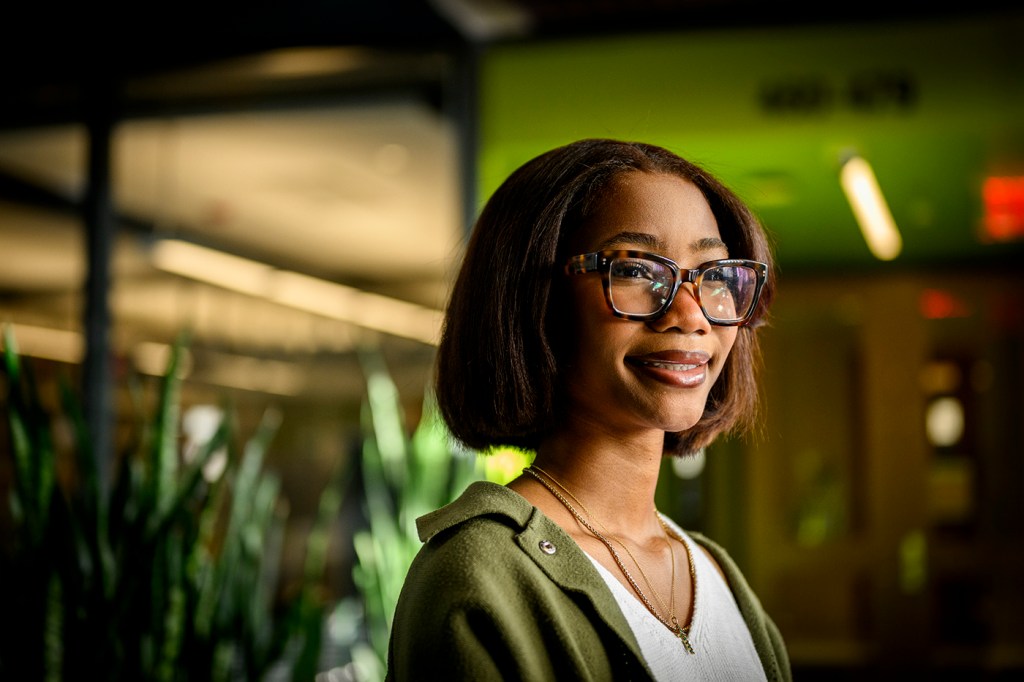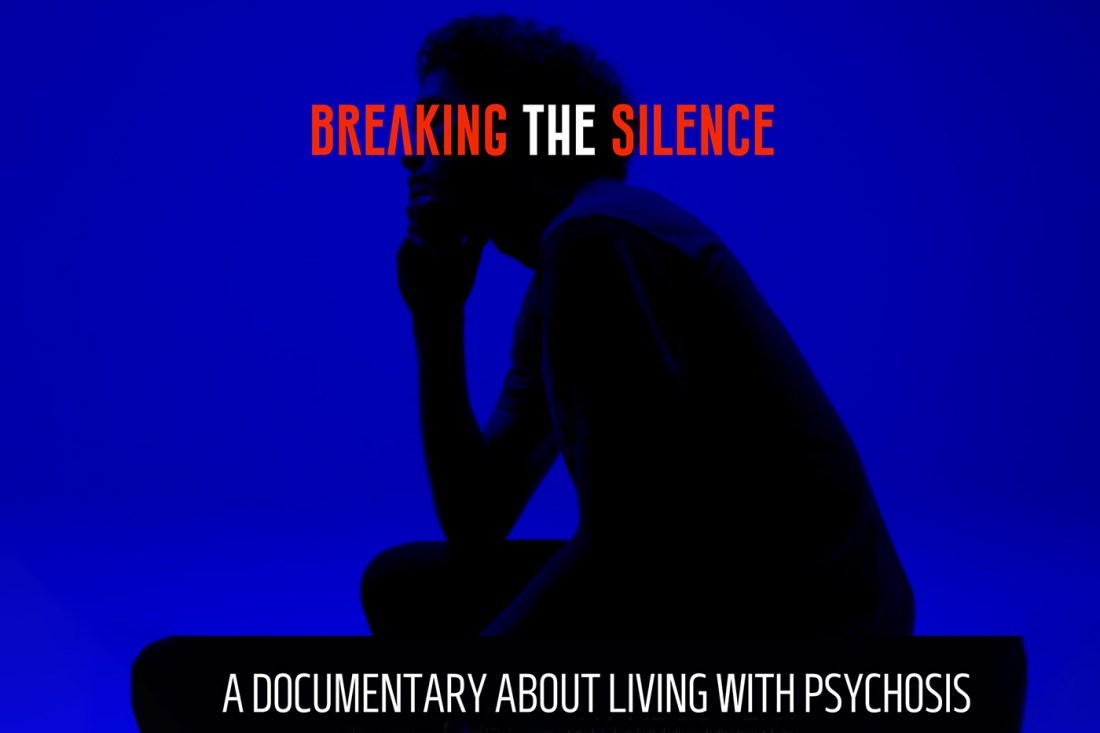How a Northeastern co-op’s research is advancing early detection of psychosis

One in five people at high clinical risk will experience psychosis in their life. But that doesn’t mean it is inevitable or lifelong, according to Northeastern University student TaKaya McFarland.
Early intervention can prevent repeat episodes and even stop psychosis before it begins, she says.
Understanding and addressing psychosis is at the heart of TaKaya McFarland’s research. A psychology major at Northeastern, McFarland is working in a clinical research position at Beth-Israel Deaconess Medical Center, a position that grew out of a co-op she completed in fall 2023.
“They give us a lot of opportunities to learn about research, participate in data collection and work on our own independent studies,” says McFarland, whose goals include providing mental health care in a community setting.
Currently, she is working on a manuscript for a paper on her attempts to develop a score, similar to the Adverse Childhood Events Score (ACES), that would help clinicians understand how vulnerable a person might be to psychosis, an event that is estimated to affect three in 100 young people.
Stress, traumatic incidents, mental illnesses like schizophrenia, physical illnesses like Parkinson’s and even sleep deprivation can bring on episodes of psychosis, which the National Institutes of Mental Health calls a “collection of symptoms that affect the mind, where there has been some loss of contact with reality.”
“It’s really important to understand psychosis because it impacts a lot more people than we think,” says McFarland, whose co-op position in fall 2023 with a BIDMC program called Building Bridges Toward Equity in Psychosis Intervention and Careers led to her current research position.
“Once people get into care they do really well,” McFarland says.

A co-op at Boston Medical Center’s Wellness and Recovery After Psychosis (WRAP) Without Walls that ended in December gave McFarland the opportunity to see how services can be delivered in a variety of community settings, from health centers to schools and libraries.
Interventions included everything from peer support, individual, group and family counseling, and medication management to help with access to metro cards and housing.
McFarland tracked new referrals, reminded patients of appointments and accompanied patients to monthly events such as trips to the zoo and the movies.
“It was a really good way to get to know the patients and see them face to face,” she says.
Impressed by patient stories, McFarland helped with the development, marketing and social media for a documentary on living with psychosis, “Breaking the Silence,” which will screen at 6 p.m., Monday, Feb. 10, at the John D. O’Bryant African-American Institute.
“The movie follows four different people within the Boston area who have experienced psychosis. It’s a very powerful film. It normalizes and takes away the stigma of psychosis and (shows) what psychosis looks like,” McFarland says. “These are real people’s experiences.”
Her mother, a school counselor, encouraged her to take a compassionate approach to understanding the barriers people, especially people of color, face in obtaining mental health care. “She taught us to be empathetic,” McFarland says.
“Because of that, I thought, ‘that’s really interesting,’ and that’s something I kept in the back of my head,” she says.
Editor’s Picks
There’s a stigma in the Black community about discussing mental health issues that’s been compounded many times over by racist treatment in the medical profession, McFarland says.
But walls are coming down, especially with the emphasis on community care over hospitalization, she says.
McFarland says when an Uber driver asked what her major was, he told her he wished he’d gotten psychological help after witnessing a traumatic event.
Trauma is one of the factors in her work on developing a screen for psychosis much like the ACES screen for health outcomes, says McFarland, who presented her research at poster sessions during the Harvard Medical School Psychiatry Research Day and and the 2024 Massachusetts Strategic Plan for Early Psychosis conference last year.
“My research is basically about intersectionality and psychosis, and what I’m focusing on is social determinants of health and using those to create an intersectionality score similar to the adverse childhood experiences studies,” she says.
After graduating from Northeastern in May, McFarland plans to find a job and apply to graduate schools for a doctoral degree in clinical psychology with a focus on community-based care and eventually teach at the college level.
“I do want to have my own practice to provide community care in the inner city or in a city with a heavy Black population,” McFarland says. “I feel as someone interested in mental health, especially someone who is a Black woman in mental health, it is important to keep fighting and creating those spaces.”











